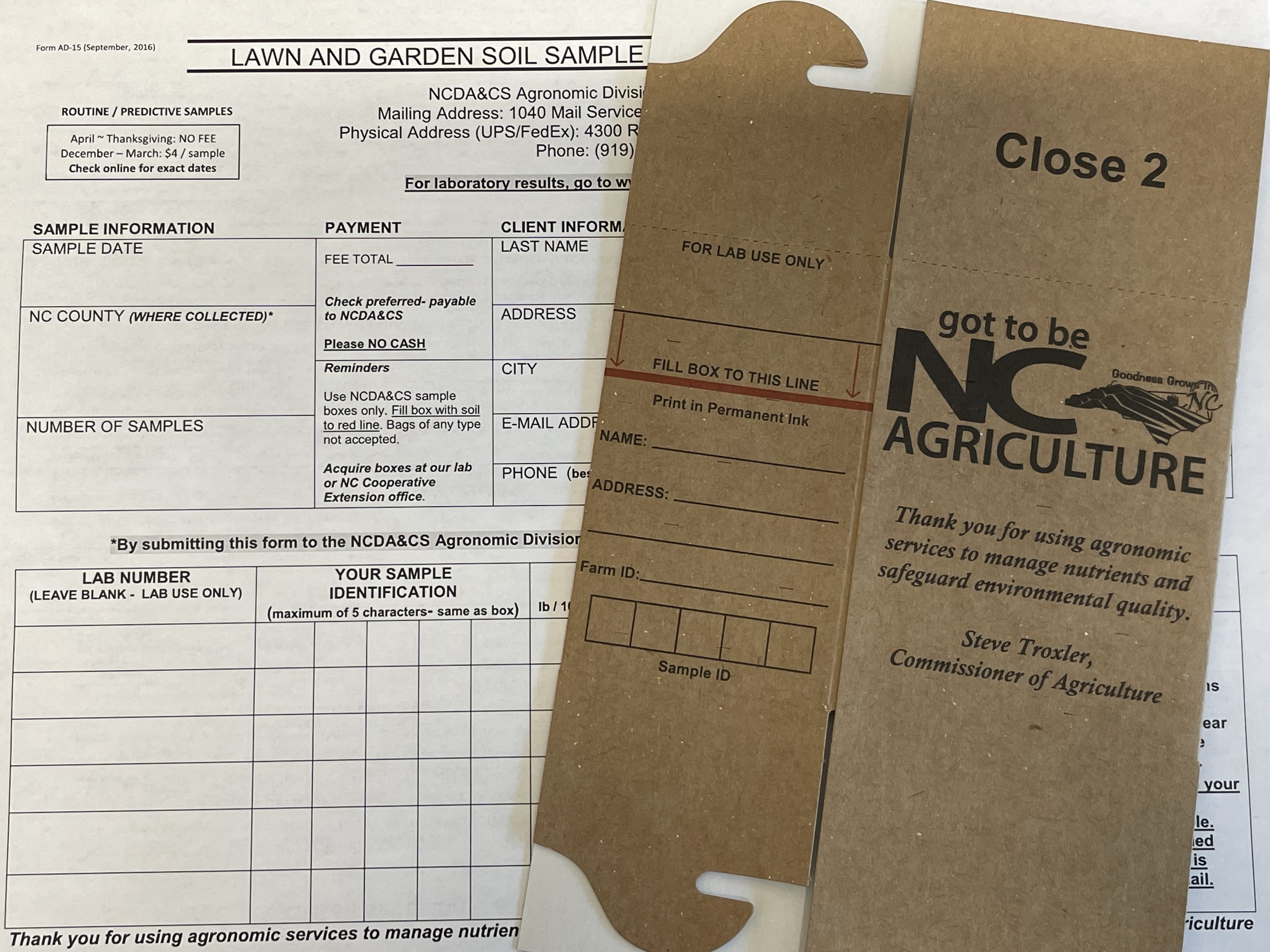Taking Adequate Soil Samples
go.ncsu.edu/readext?868336
en Español / em Português
El inglés es el idioma de control de esta página. En la medida en que haya algún conflicto entre la traducción al inglés y la traducción, el inglés prevalece.
Al hacer clic en el enlace de traducción se activa un servicio de traducción gratuito para convertir la página al español. Al igual que con cualquier traducción por Internet, la conversión no es sensible al contexto y puede que no traduzca el texto en su significado original. NC State Extension no garantiza la exactitud del texto traducido. Por favor, tenga en cuenta que algunas aplicaciones y/o servicios pueden no funcionar como se espera cuando se traducen.
Português
Inglês é o idioma de controle desta página. Na medida que haja algum conflito entre o texto original em Inglês e a tradução, o Inglês prevalece.
Ao clicar no link de tradução, um serviço gratuito de tradução será ativado para converter a página para o Português. Como em qualquer tradução pela internet, a conversão não é sensivel ao contexto e pode não ocorrer a tradução para o significado orginal. O serviço de Extensão da Carolina do Norte (NC State Extension) não garante a exatidão do texto traduzido. Por favor, observe que algumas funções ou serviços podem não funcionar como esperado após a tradução.
English
English is the controlling language of this page. To the extent there is any conflict between the English text and the translation, English controls.
Clicking on the translation link activates a free translation service to convert the page to Spanish. As with any Internet translation, the conversion is not context-sensitive and may not translate the text to its original meaning. NC State Extension does not guarantee the accuracy of the translated text. Please note that some applications and/or services may not function as expected when translated.
Collapse ▲As you are preparing your lawn, vegetable garden and flower garden, think about the soil you will be planting in. Does your soil have the essential nutrients required for the crop you are planting?
The Agronomic Division analyzes soil for nutrient content and for properties that affect plant growth. Soil Testing:
- Provides optimal, cost-effective lime and fertilizer recommendations.
- Diagnoses common nutrient deficiencies or toxicities
- Promotes environmental quality.
How do I take a soil sample for testing?
- Pick up soil sample boxes and forms at our office, N.C. Cooperative Extension, Yadkin County Center.
- Gather the proper tools needed for sampling. A soil probe or garden trowel and a clean plastic bucket.
- Prepare your sampling area. Start by scraping plants, leaves and organic debris from the soil surface.
- Take your core samples. For lawns, sample 4 inches deep. Vegetable and flower gardens, sample to the depth you plan to incorporate lime or fertilizer, usually 4 to 6 inches. You will need approximately 10-12 core samples.
- Mix your core samples thoroughly in your plastic bucket. Use the mixture to fill your soil sample box to the fill line.
- Fill out the sample form and label the sample box completely. On your sample form, you will need to include your contact information, the crop you will be growing, and the crop code (which is found on the back of the form). Make sure to include an email address, as that is how you will be notified when your online report is available.
- Place your soil sample box in a larger cardboard box for shipping and mail to the North Carolina Department of Agriculture and Consumer Services, Agronomic Division, the address is provided on the form.
- Once the sample has been analyzed, you will receive an email with your online report. Results are typically received within 2 weeks, except in peak season. If you need help analyzing the report, please call our office.
Soil Sample Kit
How much does it cost?
From April-November, soil testing is free of charge. During the peak season, December-March, there is a $4.00 fee/sample.
How often should you do a soil sample?
It is recommended to do a routine soil sample every 2-3 years. If you are having a problem area in your lawn or garden, you should sample to check for any nutrient deficiency. Do not take a soil sample immediately after applying fertilizer, lime or compost.
For more information, please call our office (336-849-7908) or visit NCDA&CS Agronomic Services
As reported in the Yadkin Ripple





